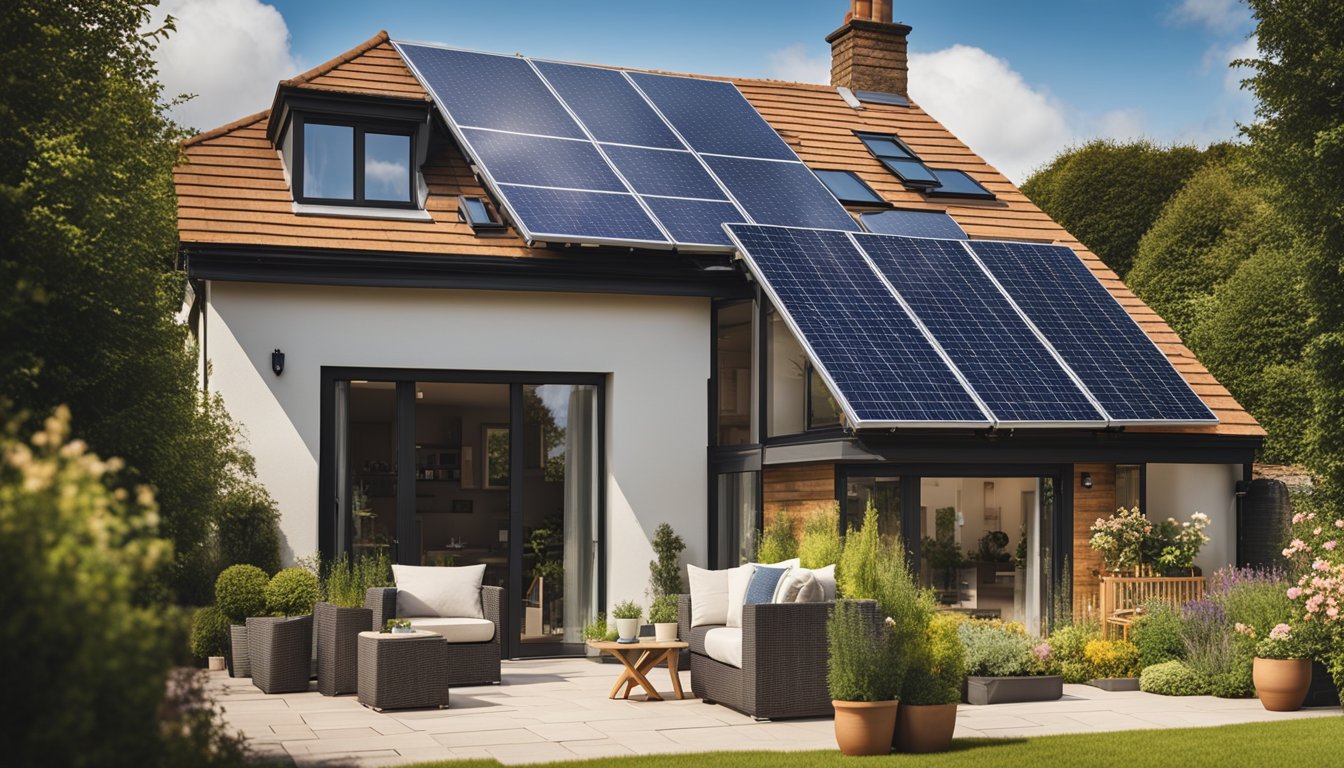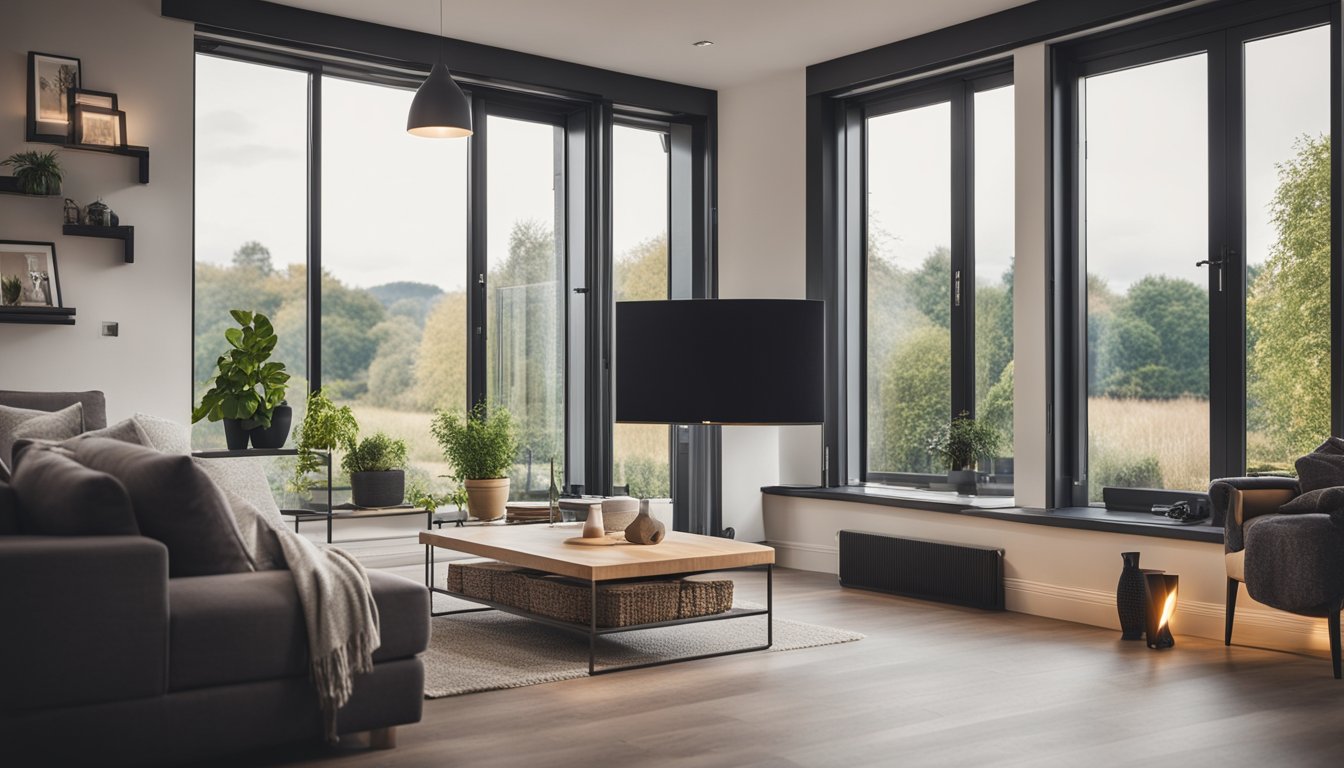Late updated: 09 Apr 2025 11:04
Written by: Oliver Bennett
Efficient Renewable Heating Solutions For UK Homes: Affordable and Sustainable Options
Exploring efficient renewable heating solutions for UK homes presents an exciting opportunity to reduce energy costs and embrace sustainable living. As we strive to combat climate change, this transition to cleaner, greener technology becomes crucial. Switching to renewable heating systems not only reduces our household’s carbon footprint but also marks a significant step towards a sustainable future.

Among the leading choices are heat pumps, solar water heating, and biomass boilers. Each of these options holds unique advantages in energy efficiency and environmental impact. By understanding the functionalities and benefits, we can make informed decisions about the best fit for our homes.
Integrating these systems is not just about adhering to eco-friendly practices; it’s about investing in our future. As this market continues to evolve, examining both emerging technology and practical considerations can guide us in implementing renewable solutions effectively.
Key Takeaways
- Renewable heating systems offer significant energy efficiency.
- Each option aids in reducing our carbon footprint.
- Careful consideration is needed for effective implementation.
Understanding Renewable Heating Systems
Renewable heating systems offer innovative ways to warm our homes while reducing carbon footprints. By leveraging technologies like heat pumps and solar panels, homeowners can enjoy efficient heating and potential cost savings.
Types of Renewable Heating Technologies
Different technologies cater to varying needs. Heat pumps use ambient air or the ground for warmth, offering a way to transfer heat efficiently. Solar panels for water heating utilise sunlight, cutting energy costs. Biomass boilers use organic materials, providing another eco-friendly option. Each technology contributes uniquely to heating, with specific installation requirements and operational benefits.
The Role of Insulation in Heating Efficiency
Insulation is key to optimising heating efficiency. It helps retain heat, lowering energy consumption. Double glazing prevents heat loss through windows, while loft insulation ensures warmth stays where needed. Proper insulation reduces energy bills and enhances the effectiveness of renewable systems by minimising heat loss, making homes more comfortable and efficient.
Comparing Running Costs and Carbon Emissions
Running costs and carbon emissions are vital considerations. Renewable systems generally have lower operating costs compared to traditional gas boilers. They also produce fewer carbon emissions, benefiting the environment. Our table below summarises cost and emission aspects of various technologies:
| Technology | Average Running Cost (£) | Carbon Emissions |
|---|---|---|
| Heat Pumps | Low | Very Low |
| Solar Panels | Minimal | Negligible |
| Biomass Boilers | Moderate | Carbon Neutral (when sustainably sourced) |
Integration With Existing Home Systems
Seamlessly integrating renewable heating with current systems can be challenging but rewarding. Compatibility is crucial; for instance, underfloor heating pairs well with heat pumps. A comprehensive evaluation of existing systems helps determine the best integration methods. Upgrades or modifications to existing systems may be required to fully harness renewable technology benefits.
Key Considerations for Implementing Renewable Heating

When considering renewable heating systems for UK homes, we need to assess their suitability based on specific factors such as space requirements and energy efficiency. It's important to weigh the financial incentives available and understand the distinct impact these systems have on different housing sectors.
Assessing Home Suitability for Different Technologies
Evaluating which renewable heating technology suits a home best is a vital first step. Solar water heating systems require adequate roof space for solar collectors, while air source heat pumps are often suitable for homes with limited outdoor space.
For properties with larger grounds, ground source heat pumps might be a feasible option. Condensing boilers work efficiently in conjunction with these systems, providing hot water and space heating. Older homes may need additional adaptations such as improved insulation to optimise these technologies.
Minimising Heat Loss and Managing Heat Gain
Reducing heat loss is crucial for maximising the efficiency of renewable heating solutions. Enhanced insulation in walls and lofts helps maintain warmth. Heat recovery ventilation systems aid in managing excess moisture and reducing cold spots without compromising warmth.
Properly managed ventilation prevents condensation and mould, making homes more comfortable. Windows and doors should be draught-proofed to limit heat loss, while shutters or blinds can help moderate heat gain during hotter months, contributing to a sustainable home.
Financial Incentives and Eco-friendly Programs
Several financial incentives are available to encourage the adoption of renewable heating solutions. Programmes like the Boiler Upgrade Scheme provide grants to help offset installation costs. These schemes aim to ease the energy transition by promoting greener heating methods.
Some homeowners may qualify for additional support based on their location or income. Utilising these incentives often results in long-term financial savings. Renewable energy solutions not only lower monthly energy bills but also increase property value due to their eco-friendly appeal.
Evaluating the Impact on Social Housing
Implementing renewable heating in social housing poses unique challenges and opportunities. Retrofitting existing buildings with energy-efficient systems requires careful planning. Assessments must consider infrastructure adaptability alongside tenants’ specific needs.
Social housing providers can lower tenants’ bills by minimising heating and cooling costs through renewable technologies. Participating in government programmes designed for social housing enhances these projects' viability. Renewable solutions improve living conditions by addressing issues like moisture and damp, resulting in healthier living environments.
Frequently Asked Questions

Renewable heating solutions in the UK are increasingly popular due to their cost-effectiveness and environmental benefits. In this section, we explore various heating systems, their costs, and their suitability for different types of homes.
What are the most effective green heating solutions for British homes?
For many UK homes, heat pumps, biomass boilers, and solar water heating are among the most effective renewable heating solutions. Each system offers unique benefits, from reducing carbon emissions to saving on energy bills.
How do the costs of renewable heating systems compare for UK households?
The initial installation costs for renewable heating systems can be higher than traditional options, but the long-term savings on energy bills and potential government incentives make them an attractive investment for many families.
What eco-friendly heating options are suitable for older UK properties?
Older properties may face challenges with certain technologies. However, biomass boilers and ground source heat pumps are often well-suited due to their compatibility with existing structures and ability to deliver consistent heat.
Which renewable heating system is the best choice for a small home in the UK?
For smaller homes, air source heat pumps and solar water heaters are efficient options. These systems are compact and adaptable, making them perfect for limited space while still providing substantial energy savings.
Can you identify the most cost-effective home heating system for the British climate?
In the UK's mild climate, air source heat pumps are frequently identified as a cost-effective solution. They leverage the ambient air to provide heating and cooling efficiently, reducing reliance on fossil fuels.
What is the efficiency comparison between air source heat pumps and other UK home heating methods?
Air source heat pumps are typically more efficient than traditional gas boilers, offering a conversion efficiency of up to three times the energy input. This makes them a viable candidate for households looking to decrease energy consumption and costs.
